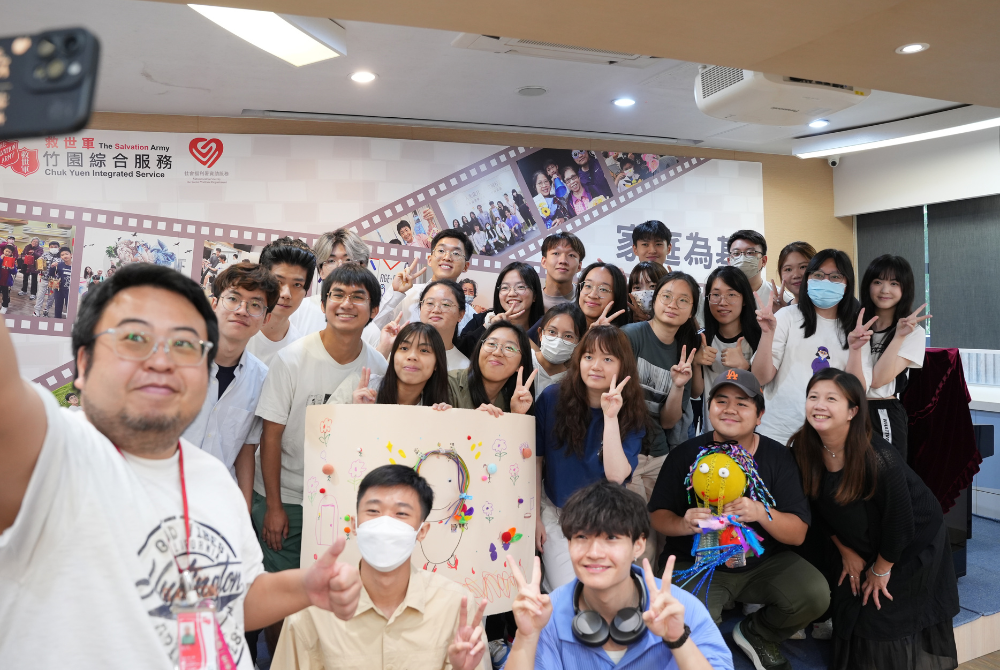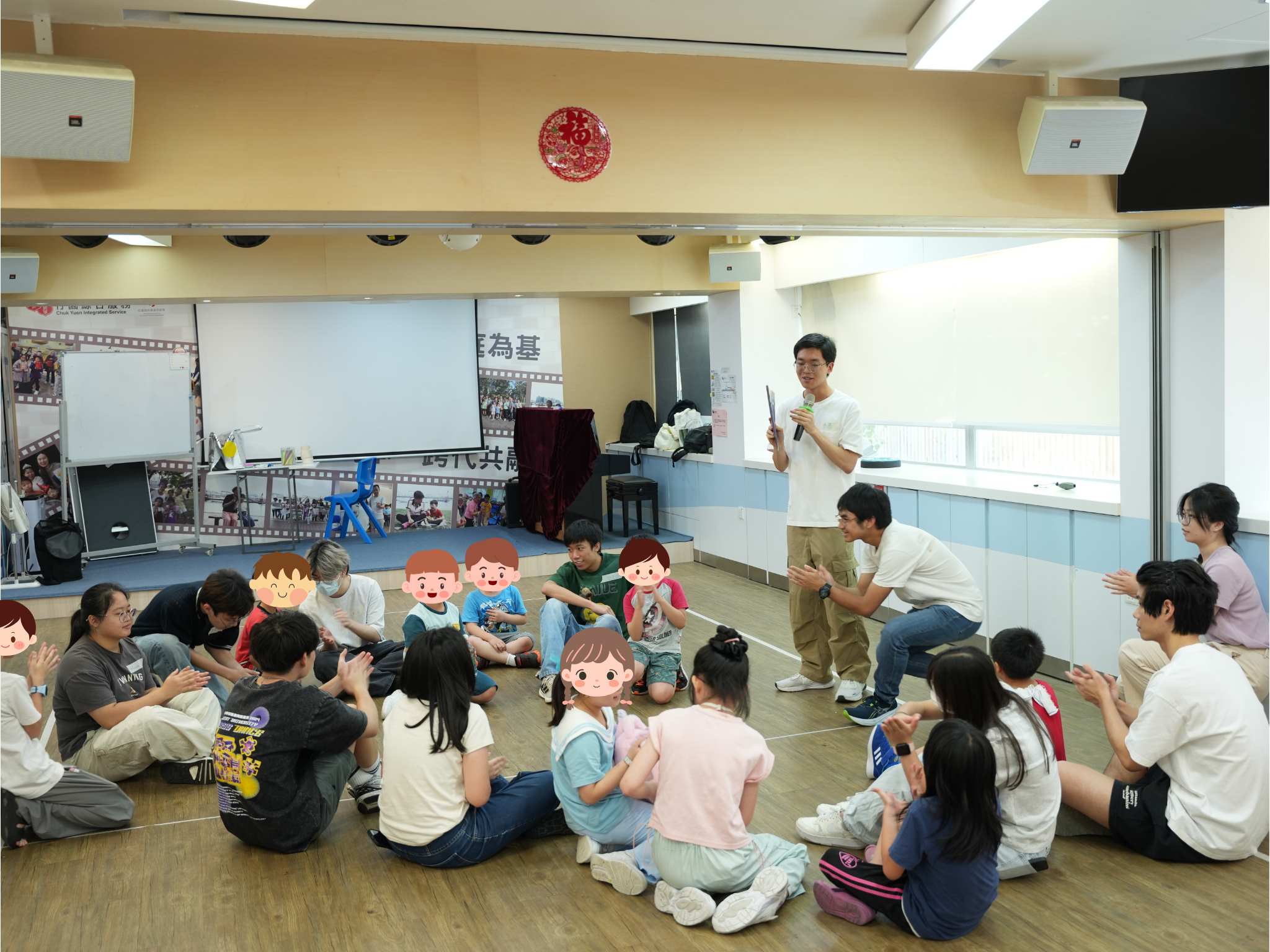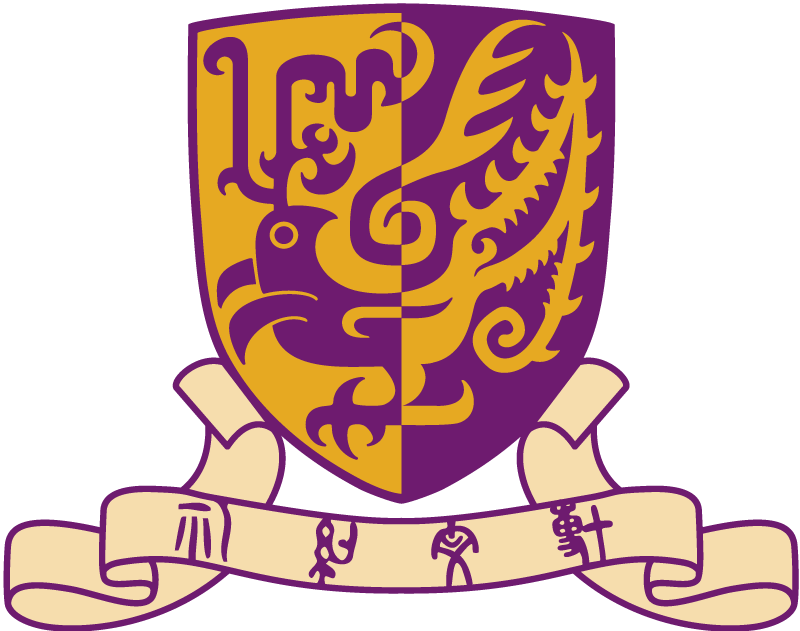Harmony in Student Diversity: Service-learning Pilot Scheme 2025

“Hyperactive,” “uncontrollable,” “unable to focus”…
Children with Special Educational Needs (SEN) carry various societal labels. What kind of educational model is suitable for them?
Having different learning progress, models in traditional classrooms may bring additional pressure to SEN children . Beyond textbook knowledge, they also receive trainings in executive functioning and emotional management through various activities. This summer, the College once again held the “Service-Learning Pilot Scheme.” Apart from enhancing UC students’ understanding on SEN children, the scheme also aims to help these SEN children integrate into their learning community effectively through experiential learning. 24 college students visited a local community centre and organised newly emerged sports activities from mid-May to late-June and interacted with SEN children.
Before the services, programme instructors introduced various categories of SEN, highlighting common behavioral patterns, and the challenges these children often face. The newly emerged sports coach also introduced a range of innovative sports, demonstrating various modes and styles. Unlike traditional sports, newly emerged sports typically require lower skill set and venue thresholds, while the innovative and varied mode is more suitable and easier to attract children’s participation. Newly emerged sports can also help discovering children’s preferences in sports. For example, children who like goal-oriented sports may prefer cornhole or mölkky, while those prefer competitive sports may favor Dodgebee. Through the “strengths-based” intervention approach, the newly emerged sports help children build self-confidence and foster a sense of achievement. These recognition not only supports their personal growth but also positively influence their everyday lives.
When preparing for the service, students needed to thoughtfully consider the learning objectives of the activities. In addition to designing the activity flow, they also gained practical knowledge and techniques for effectively leading group activities. This included learning appropriate methods for gathering and maintaining children’s attention, delivering clear and concise instructions, and encouraging active participation through the activities.

“Compliments” are often more precious than “Gifts”
During the preparation, students also had reflections on the deeper significance of “gift”. At the end of each session, our students prepared small tokens – such as snacks or stickers – as gifts for childern. While these gestures brought moment of joy, the happiness they sparked was often fleeting. In contrast, children found greater enjoyment in the positive feedback and interactive engagement during the game activities. Learning how to express appreaciation sincerely became a valuable lesson for students themselves. By clearly articulating what is worthy of praise, appreciation with sincere compliments served as powerful motivators, fostering continuous efforts and resilliance. Despite difference in learning pace, it is hoped that SEN children can inclusively integrate into the learning community – supported not only by structured activities but also by genuine recognition and encouragement.

Students took group photos with the programme instructor and centre’s staff.

In alignment with the United Nations’ Sustainable Development Goals of “ensuring inclusive and equitable quality education”, the College aims to foster a more inclusive learning environment through the promotion of newly emerged sports. These innovative activities serve as a platform to challenge discrimination and breakdown stereotypes against children with SEN, as well as to build an inclusive and supportive learning environment for children.




